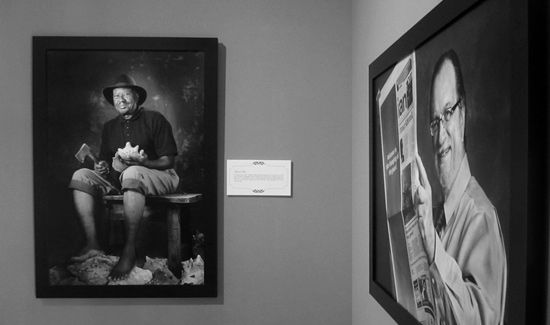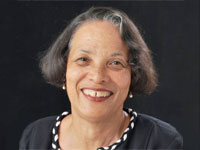 The comments of Haitian President Michel Martelly to Haitian-Bahamians when he visited The Bahamas earlier this year led to much debate. Martelly advised Bahamians of Haitian descent to form a voting bloc, and to vote for the party that has their best interests at heart. His remarks exposed raw emotions on the immigration issue in our country.
The comments of Haitian President Michel Martelly to Haitian-Bahamians when he visited The Bahamas earlier this year led to much debate. Martelly advised Bahamians of Haitian descent to form a voting bloc, and to vote for the party that has their best interests at heart. His remarks exposed raw emotions on the immigration issue in our country.
The modern Bahamas is a nation created through migration. The Amerindians Christopher Columbus met here 520 years ago are no more. Europeans and Africans displaced those people when permanent contact was made between the old and new worlds.
Today’s Bahamas is even more ethnically and culturally dynamic. People from the Middle East, China and India also call this country home. They bring their experiences to our cultural mix, expanding The Bahamas.
The Bahamian relationship with the Haitians who migrate here is complicated. Haitians have come to The Bahamas since the creation of the Republic of Haiti in 1804. With the collapse of Jean Claude Duvalier’s regime in the mid-1980s, however, those flows increased as Haiti’s poor looked for new lives in new places.
Some Bahamians resent the large number of poor Haitians who have come here looking for a second chance. Some Haitians are upset at the discriminatory treatment they have received from some Bahamians.
Martelly should not have gotten involved in Bahamian politics while visiting. Staying out of local politics while on foreign trips is a convention of diplomacy, but his intrusion into Bahamian politics is no excuse for bigotry and xenophobia.
The Government of The Bahamas has the responsibility of carrying out the laws of the country. It should provide our border protection officers with all the resources needed to prevent people from illegally entering Bahamian territory. Foreigners who come here illegally should be repatriated in accordance with the law.
But what must be remembered is that those who are given citizenship are Bahamians once that decision is made. They should be afforded the same rights and privileges as other Bahamians.
We can debate who should be given permanent residence as opposed to citizenship. Countries have the authority to set residency standards based on the consensus of the times. However, we should not disparage those given status or argue that they are lesser citizens if citizenship was granted.
In deciding to become part of our community these new Bahamians bring different ideas, languages, traditions, foods and energies to our already multicultural society. And as a culturally richer community, we should work together to solve common problems.
Haitian-Bahamians should not close themselves off and form exclusive political blocs to defend themselves. Haitian-Bahamians should, like all other Bahamians, examine the various political parties and candidates and determine who is best to advance The Bahamas.
Conversely, “native” Bahamians should not fear the inclusion of new people into our commonwealth. What should exist is an immigration policy that can reasonably control who comes to The Bahamas. We should seek to recruit people from around the world – in the numbers we think reasonable – to add skills to our country. In doing so, we as a nation become stronger.
When governments are unable to police the flow of people to a territory, the established community becomes suspicious. Hence, it is important for clear immigration policy to exist and resources to be provided to help ensure the policy is enforced.
We hope passions cool on this issue over time. Ethnic rivalry has made many countries unstable and has led to conflict.
Editorial, The Nassau Guardian



